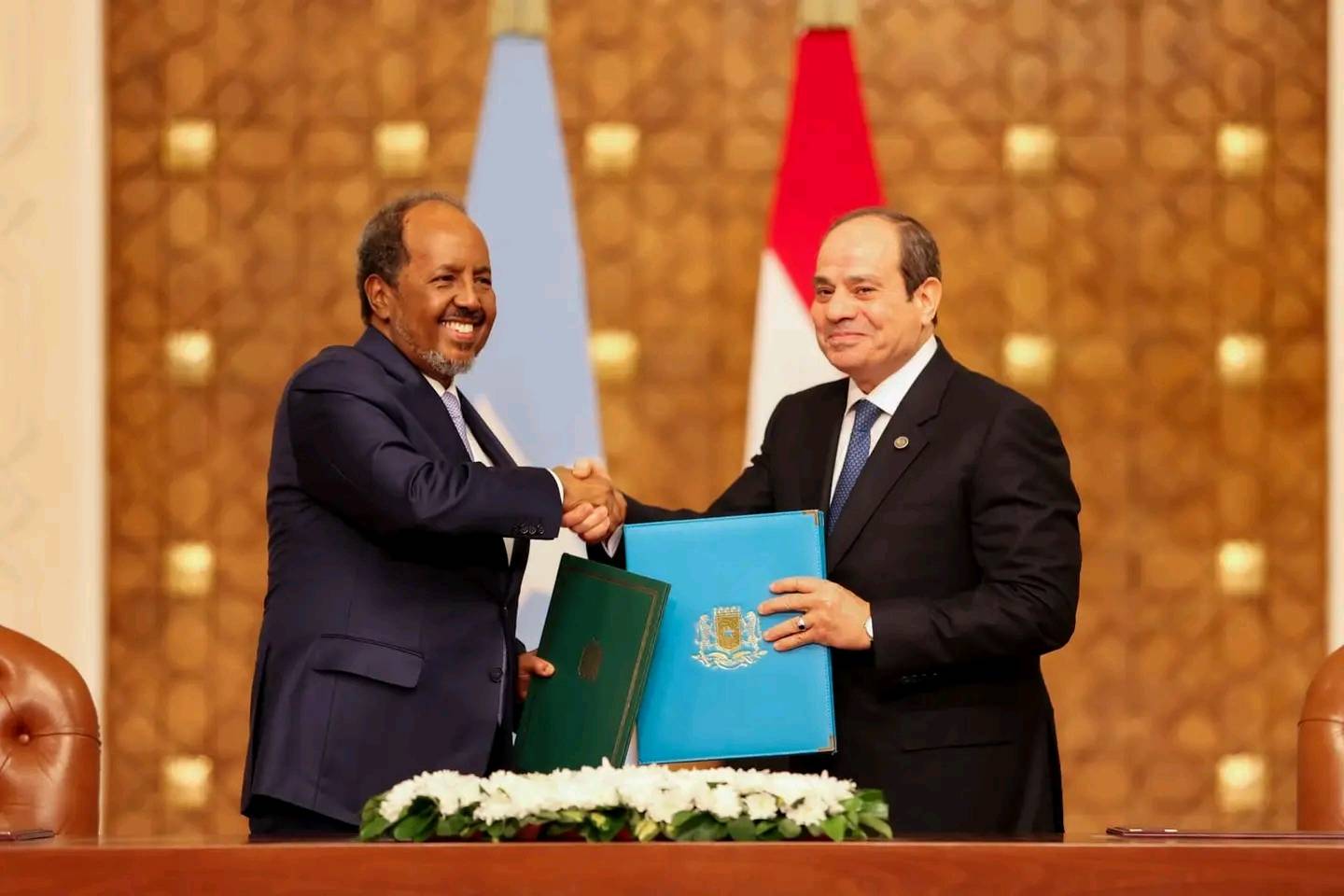ADDIS ABABA, Ethiopia (Kaab TV) – Ethiopia’s top military commander has issued a stark warning about the presence of Egyptian troops in Somalia, describing it as a growing threat to Ethiopia’s national security.
Field Marshal Berhanu Jula, Chief of the Ethiopian National Defense Forces (ENDF), told lawmakers in Addis Ababa on Saturday that foreign military deployments in Somalia—under the guise of cooperation—pose serious concerns for the region’s stability and Ethiopia’s sovereignty.
“The threat is real,” Berhanu said in a briefing to the Ethiopian parliament. “There are foreign forces inside Somalia whose strategic intent raises serious concerns for Ethiopia’s stability.”
While Berhanu did not explicitly name Egypt, his remarks come amid reports confirming that Cairo signed a military cooperation agreement with the Somali federal government in August 2024.
The deal reportedly allows Egypt to deploy up to 10,000 troops to Somalia—half under the African Union’s stabilization mission (AUSSOM), and the rest under a separate bilateral arrangement.
The agreement also includes provisions for weapons transfers.
Berhanu noted that the Horn of Africa is a region plagued by land and maritime tensions and warned of forces actively working to block Ethiopia from accessing the sea.
“We are ready to solve the region’s problems together,” he said. “But there are forces that do not want Ethiopia to approach the sea gate.”
Ethiopia maintains troops in Somalia as part of both the African Union’s stabilization effort and a bilateral security arrangement.
However, Berhanu suggested that the expanding Egyptian presence may be part of a broader strategy to encircle or weaken Ethiopia—especially given longstanding tensions between the two countries over the Grand Ethiopian Renaissance Dam (GERD) on the Nile River.

Egypt sees the GERD as a threat to its water security, while Ethiopia considers it a critical development project.
Ethiopia’s national interest in Somalia
“Our presence in Somalia has always been about supporting peace and counterterrorism,” Berhanu told lawmakers. “But the environment is shifting, and we have to reassess what’s in our national interest.”
He did not disclose the number of Ethiopian troops operating in Somalia under bilateral terms but said defense officials are reevaluating Ethiopia’s strategic posture in light of “emerging regional threats,” including Al-Shabaab.
Meanwhile, Somali officials have defended the Egypt-Somalia military pact, arguing that it aims to rebuild the Somali National Army and strengthen regional security.
They maintain that Egypt’s participation in AUSSOM was approved by the African Union and poses no threat to neighboring countries.
The timing of the Egypt-Somalia agreement has further strained already tense relations between Addis Ababa and Mogadishu.
In January 2024, Ethiopia signed a controversial Memorandum of Understanding (MoU) with Somaliland, granting it access to a portion of the Red Sea coast in exchange for what Somaliland leaders described as a pathway toward formal recognition.
The Somali federal government immediately denounced the deal as a violation of its sovereignty, recalled its ambassador, and declared the agreement null and void.
Tensions between Ethiopia and Somalia persisted for nearly a year, only beginning to ease following a Turkish-brokered dialogue in late 2024, in which both sides agreed to pursue future cooperation on maritime access.
Ethiopia has maintained its commitment to the Somaliland deal but has not publicly withdrawn from it.
Somaliland authorities continue to assert that the agreement remains valid.
In a recent development, Somaliland officials told reporters that President Abdirahman Irro is expected to visit Addis Ababa soon to hold direct talks with Ethiopian Prime Minister Abiy Ahmed regarding the MoU.
Ethiopian officials have stated that the MoU is still pending, but they remain committed to securing maritime access through diplomatic channels.


